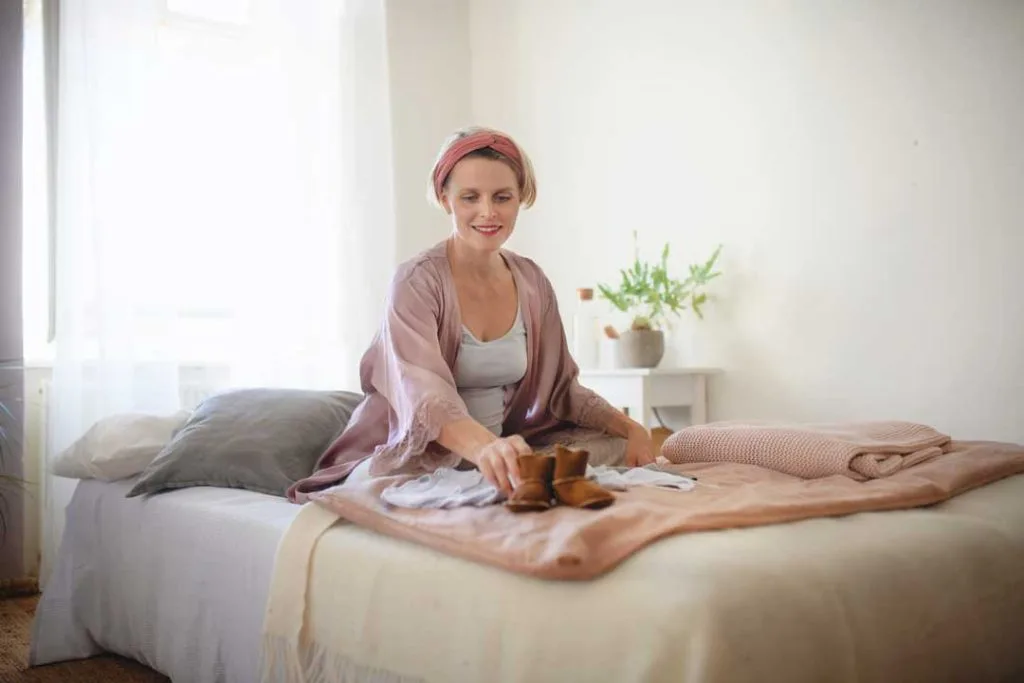Why self-care matters isn’t just a question—it’s the key to better health, deeper relationships, and a more joyful life.

Self-care isn’t just a trendy catchphrase; it’s vital for maintaining a healthy, fulfilling life. Focusing on your well-being can drastically improve your physical health, mental clarity, and emotional balance. By putting yourself first, you build resilience to life’s challenges, enhance your mood, and nurture relationships.
The Benefits of Self-Care: Live Healthier and Happier Every Day
Life can be hectic, demanding your attention every waking minute. Responsibilities at work, home, and elsewhere make it easy to forget to take care of yourself. Prioritizing self-care helps you recharge, offering the strength and energy you need to meet daily demands effectively.
Self-care empowers you to live your life with intention and joy. When you invest in yourself, you’re setting the stage for a healthier, happier existence. Imagine a life where stress is easier to manage, and joy finds its way into your everyday routine. That life is possible—and it starts with self-care.
Understanding Self-Care
Self-care is crucial for maintaining mental and physical well-being. By recognizing its core concept, dispelling common myths, and exploring the psychological elements, you can enhance your health journey.

In this context, core wellness represents the foundation of self-care that contributes to a holistic and balanced life, integrating both physical and emotional health for overall well-being.
Defining Self-Care
Self-care is about taking proactive steps to preserve or improve your health. It involves activities and practices that you can engage in on a regular basis to reduce stress and enhance well-being. It’s not just about pampering yourself with spa days or treats; it includes any deliberate actions taken to address your needs.
Whether you are practicing mindfulness, getting enough sleep, or prioritizing nutritious meals, these habits contribute to better physical and mental health.
Consider building a self-care routine that works best for you. What can you easily incorporate into your daily life? Regularity is key. It’s not a one-time event but a continuous effort to nurture yourself.
Common Myths and Misconceptions
There are several myths surrounding self-care that can deter people from implementing it into their lives. Myth: Self-care is selfish. In reality, taking care of yourself enables you to support others more effectively.

Another misconception is that self-care is time-consuming and costly. Many believe it requires elaborate rituals and indulgent purchases. The truth is, activities like a short walk in nature, deep breathing exercises, or even a few minutes of quiet reflection can serve as effective self-care practices.
Myth: Self-care means being alone. While solitude can be part of the process, it’s also about connecting with others, seeking support, and engaging in activities that bring joy and fulfillment.
The Psychology Behind Self-Care
The psychological elements of self-care involve understanding why it’s vital for your mental health. Engaging in self-care practices reduces stress and increases resilience. These activities activate your body’s relaxation response, counteracting the effects of stress.
Self-care also boosts self-esteem. By consistently prioritizing your own needs, you reinforce the message to yourself that you are important and worthy of care. This can lead to a more positive self-image and greater overall satisfaction.
Understanding and addressing mental barriers can help you more effectively incorporate self-care into your life, making it a foundational component of your wellness routine.
Practical Self-Care Strategies
Focusing on daily routines, physical health through exercise and diet, and emotional care can significantly improve your well-being. Each aspect plays a crucial role in maintaining a balanced life. Dive into practical ways to nurture yourself and implement self-care into your everyday routine.

Daily Routines for Success
Creating a daily routine that nurtures your mind and body sets the stage for success. Start by incorporating a morning ritual that might include stretching and meditation to clear your mind. Allocate time for short breaks during work to prevent burnout.
Consistency is key, so try to establish a fixed bedtime to ensure quality sleep. Consider using a planner or digital app to organize tasks efficiently. This simple structure can increase productivity and reduce stress. Over time, these habits can lead to a healthier, happier you.
Physical Self-Care: Exercise and Diet
Physical activity and balanced nutrition are foundational to well-being. Prioritize regular exercise, whether it’s a daily walk, yoga, or a gym session. Choose activities you enjoy to stay motivated.
Eating a diverse diet full of fresh fruits, vegetables, lean proteins, and whole grains provides essential nutrients. Hydration is equally important, so aim for at least eight glasses of water a day. Small, consistent changes to your diet and exercise routine can significantly enhance both energy levels and mood.
Emotional Self-Care: Mindfulness and Relationships
Emotional wellness is as significant as physical health. Begin with mindfulness practices such as meditation or deep breathing exercises to center yourself and reduce stress. Allocate time for activities that bring joy, like reading or drawing.
Building and maintaining healthy relationships is crucial. Surround yourself with supportive friends and family who encourage your self-care journey. Lastly, establish boundaries that protect your mental space, ensuring time for solitude and reflection. By prioritizing emotional care, you’ll build resilience and emotional balance.
Overcoming Challenges in Self-Care

Navigating self-care can be difficult with obstacles like personal barriers, unrealistic expectations, and the need for support. By focusing on specific challenges such as personal barriers and goal-setting, and leveraging support, achieving a balanced self-care routine becomes possible.
Identifying Personal Barriers
Recognizing personal barriers is an essential step in improving your self-care. Internal obstacles, such as guilt or low self-esteem, can hinder one’s ability to prioritize self-care. For some, time constraints or pressing responsibilities might seem insurmountable.
Consider external factors like work or family dynamics that may impede your efforts. Reflecting on these barriers helps you to understand what holds you back. By pinpointing root causes, you can address issues directly, paving the path toward improved self-care. It’s important to embrace flexibility and adaptability in response to your unique challenges.
Setting Realistic Goals
Goal-setting in self-care requires identifying attainable and meaningful targets. Creating overly ambitious goals can lead to disappointment and frustration. Start with small, actionable steps. For instance, incorporate a five-minute meditation into your daily routine or add a short walk after lunch.
Breaking goals into manageable portions makes them achievable and builds confidence over time. Use tools like journals to track progress and celebrate milestones. Adjust goals as needed, and remember that success is not solely measured by grand gestures, but by consistent, small efforts.
Seeking Support and Accountability
Solid support networks can significantly ease self-care challenges. Sharing your objectives with friends or family encourages accountability. Engaging with like-minded individuals in support groups or communities can provide motivation and inspiration. These networks offer a space to share experiences and learn from others’ journeys.
Consider utilizing professional services, including coaching or therapy, to assist you in tackling obstacles and maintaining focus.
Remember, seeking support is not a sign of weakness, but a proactive step towards sustained self-care. Make sure to surround yourself with positive influences who understand your goals and encourage your well-being.
Prioritize Yourself: Why Self-Care Matters More Than Ever

Self-care is a fundamental aspect of living a healthy, balanced life. By focusing on your physical, emotional, and mental well-being, you not only enhance your health but also improve your resilience, productivity, and relationships.
Understanding the importance of self-care and debunking common myths helps to create a realistic and sustainable practice that fits into your daily life. Overcoming personal barriers, setting achievable goals, and seeking support can all help you maintain a consistent self-care routine.
Prioritizing self-care isn’t selfish—it’s an essential step in ensuring you are the best version of yourself, enabling you to handle life’s challenges with confidence and joy.

Jessi is the creative mind behind The Coffee Mom, a popular blog that combines parenting advice, travel tips, and a love for all things Disney. As a trusted Disney influencer and passionate storyteller, Jessi’s authentic insights and relatable content resonate with readers worldwide.
